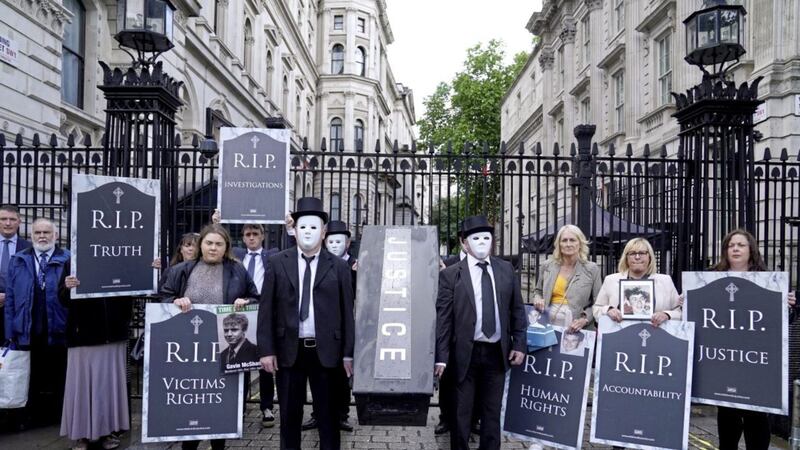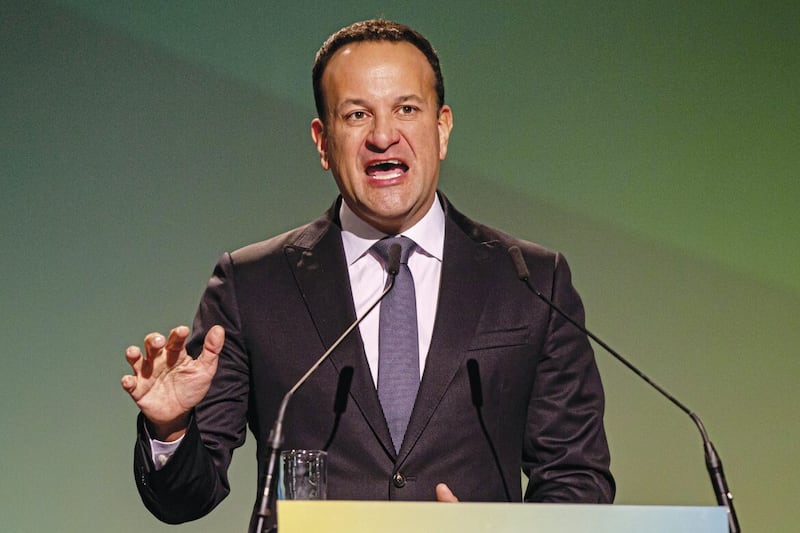The British government announced on Tuesday that the Legacy Bill, published only last week, is to proceed to its next stage via a Committee of the Whole House.
The out-working of this means that there will be very little opportunity for scrutiny of the details of the bill.
So legislation which does not have the support of any of the political parties in the north, nor of victims’ groups, is to be rammed through without time for proper scrutiny.
It is all the more worrying that this is happening in light of the assessment of the bill by the Northern Ireland Human Rights Commission which has said that it is “substantially flawed” and incompatible with the European Convention on Human Rights.
Victims and their advocates will rightly focus on the bill’s breach of Article 2 of the convention, which provides for the right to an independent investigation where there has been a violation of the right to life and on Article 3 rights on the prohibition of torture. We should also be concerned about the potential for breaches of Article 6 provisions around the right to a fair trial.
It may seem surprising that an article of the ECHR designed to protect perpetrators or alleged perpetrators of human right abuses should be a cause for concern, but the suspension of the rule of law needs to be highlighted wherever it takes place.
Under Article 6, everyone is entitled to a fair and public hearing by an independent and impartial tribunal established by law. They have the right to prepare a defence, to access legal assistance and to examine witnesses against them.
If an information recovery body comes into possession of information in respect of a third party who has not appeared before them, then the rights of that person will not be able to access any of their rights under Article 6. This is just one more reason why persons who might be in possession of information that could be valuable to victims and survivors will just choose to sit out the five year proposed operational time-frame of the Commission. And it’s just one more reason why fast law is bad law.
It is planned that the legislation will be pushed through Parliament in two days. A total of eight hours debate is scheduled and all amendments have to be moved and debated within that eight hour window. The further consequences of this procedure are that the NI Affairs Committee will not be able to scrutinise the bill and no evidence will be taken. Normally when a bill is in committee stage, interested parties have an opportunity to have their say on its provisions. Once again, victims and survivors will be denied the right to give their view and perpetrators will be shielded at the expense of truth, justice and accountability.
The third reading of the bill takes place on the second day of the debate, meaning the legislation will then go to the House of Lords. With no evidence being heard from victims, no opportunity for proper committee scrutiny and no real opportunity for amendments to be tabled, debated and voted upon.
There is a cruelty in the process of this legislation that only adds to the pain and hurt of victims and survivors. When the bill was initially announced last week, it was done much more quickly than had been anticipated and it immediately shut down access to civil remedies for victims and survivors. The British government had indicated at the time of introduction that the legislation would not be rushed through parliament under accelerated passage and could reasonably be expected that the committee stage could take around six months.
This is not simply the Tories wanting to get legacy done in the way they wanted to get Brexit done, this is much more sinister. This is part of a determined strategy to demonise and shame victims and survivors. We have heard that in the language of “vexatious prosecutions” and “drawing a line under the past.” The truth is that, if evidence exists to bring forth a prosecution, then it is not vexatious, it is the operation of the rule of law. Saying we must draw a line under the past suggests that it is victims and survivors who are to blame if society cannot move forward.
As the second reading was happening, protests were taking place in Belfast and Derry and a letter opposing the legislation was handed in to Downing Street. The protests will undoubtedly continue given the justifiable anger of victims and survivors and their advocates.
Rather than shutting down avenues of legal challenge for victims and survivors, this legislation will now itself face multiple challenges for its breach of due process and the rule of law.








